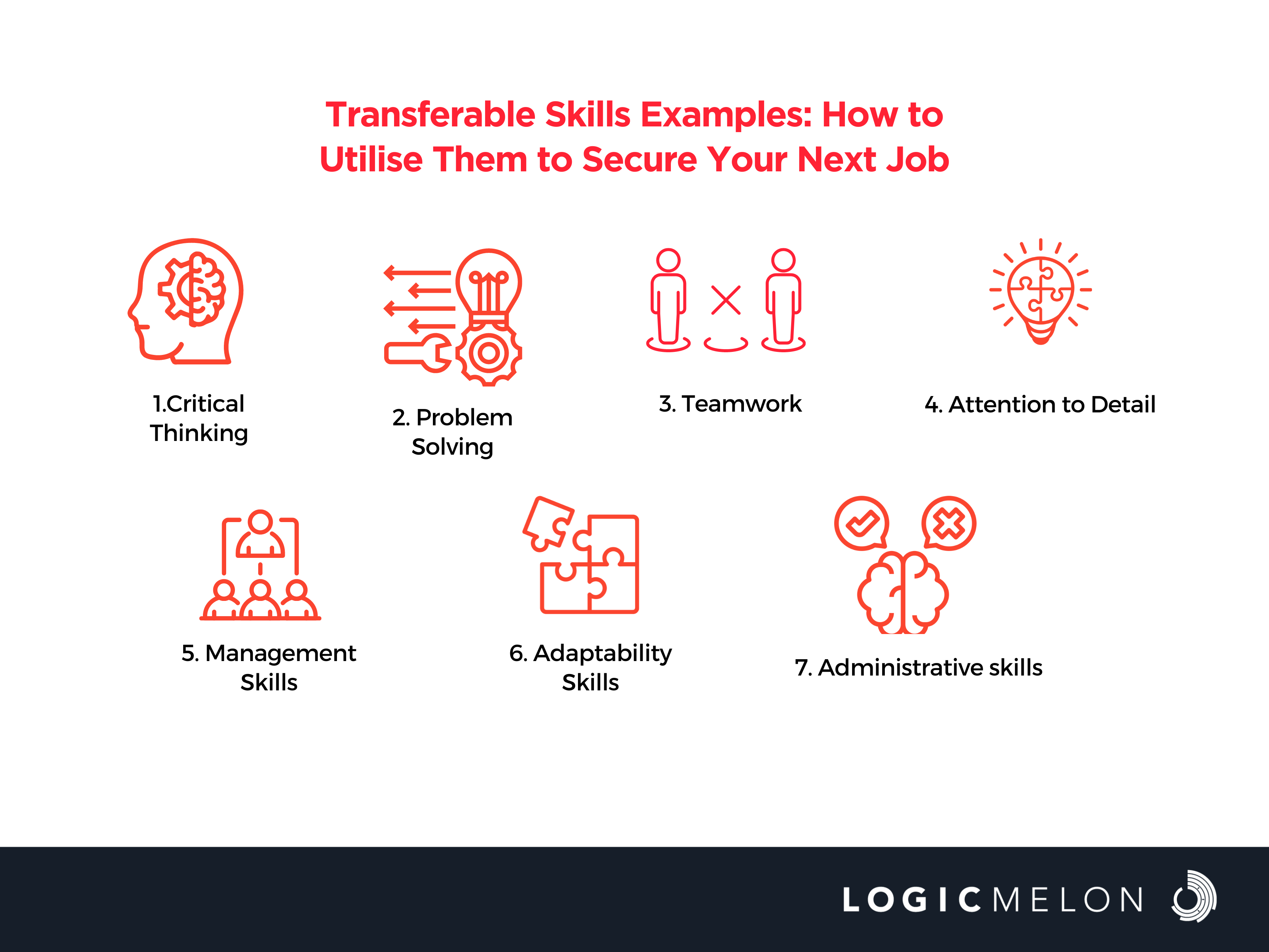Transferable Skills Examples: How to Utilise Them to Secure Your Next Job
Whether you’re on the lookout for a new job opportunity or planning to make a career transition, transferable skills can be your secret weapon. These skills, acquired from previous work experiences, stay with you and can greatly enhance your chances of success in your next role. In this engaging and dynamic blog post, we will delve into the definition, importance, types, and provide exciting examples of transferable skills that will give you a competitive edge in the job market.
What are Transferable Skills?
Transferable skills, also known as portable skills, are the valuable abilities and expertise that you carry from one job to another. These skills are highly sought after by employers because they save valuable time and resources. Unlike technical skills that are specific to a particular job or industry, transferable skills are adaptable and can be applied across various roles and sectors.
The pandemic’s impact on the workforce has emphasised the importance of transferable skills. These skills often referred to as soft skills, complement the more tangible hard skills and play a crucial role in enhancing productivity and driving overall profitability within organisations.
Unlocking Your Potential: The Significance of Transferable Skills
Transferable skills serve as the key differentiators that employers seek in potential employees, regardless of whether they possess the exact skills required for a particular role. These skills need to be scalable and relevant to the position you are applying for, showcasing your versatility and adaptability.
The beauty of transferable skills lies in their universality. They can be seamlessly transferred across diverse industries and organisations, enabling you to navigate new roles, departments, or even entirely different industries. When applying for a new job, it is essential to identify and highlight the transferable skills you possess. Take the time to understand the job responsibilities and requirements of the role you are interested in, aligning them with your existing skill set and experiences.
Types of Transferable Skills with Examples:

1. Critical Thinking
Critical thinking involves the ability to gather information, analyse opposing viewpoints, and engage in logical argumentation. An employee with strong critical thinking skills asks probing questions during meetings to ensure sound decision-making. For example, questioning popular opinions and challenging assumptions helps maintain reliable and well-founded decision-making processes.
2. Problem-Solving
Problem-solving skills are essential for finding effective solutions to complex issues. An individual adept in problem-solving can create a harmonious work environment by resolving conflicts and ensuring employee comfort. For instance, a skilled manager tackles team issues by taking necessary corrective actions and implementing strategies to foster collaboration.
3. Teamwork
Teamwork entails the ability to collaborate effectively, support colleagues, provide motivation, and receive constructive feedback. Successful teamwork involves prioritising the collective goals over personal interests. An exemplary teamwork scenario is when an employee seeks assistance from colleagues to enhance work quality and achieve shared objectives.
4. Attention to Detail
Attention to detail is vital for ensuring project quality. A professional exemplifying this skill meticulously reviews documents, articles, or reports to identify and correct errors in spelling, grammar, or phrasing. Employers highly value this skill as it contributes to maintaining high-quality work standards.
5. Management Skills
Management skills encompass the ability to handle people and processes efficiently. Individuals with these skills understand how each team member fits into the bigger picture and can navigate various work scenarios. Managing a diverse group of individuals with different personalities and cultural backgrounds requires a range of skills. An excellent example of management skills is a manager taking care of their team’s well-being, regardless of whether they perform day-to-day tasks.
6. Adaptability Skills
Adaptability skills involve the ability to adjust to new situations. Those with this skill not only tackle challenges in difficult scenarios but also support team members who are new and facing obstacles. An example of adaptability skills is an employee who was recently hired and swiftly takes on important tasks to achieve the organisation’s objectives.
7. Administrative Skills
Administrative skills, including clerical tasks and record management, are vital for the smooth functioning of any organisation. These skills encompass managing records, data entry, accounts, call screening, and transfers. While often seen as mundane day-to-day activities, they play a critical role in ensuring organisational success.
Frequently Asked Questions:
1. What types of transferable skills do employers look for?
Employers seek transferable skills such as communication, problem-solving, and teamwork. These skills are highly valued and can give you a competitive advantage in the job market.
2. Do transferable skills consist of soft skills?
Yes, transferable skills include soft skills such as problem-solving, critical thinking, innovation, creativity, communication, and the ability to navigate complexity and ambiguity.
3. Why are transferable skills important in the job market?
Transferable skills are the skills you can carry with you from one job to another. Employers highly prize them. For example, a writer who can collaborate effectively in a team setting is more desirable than a freelancer accustomed to working in isolation.
Closing Thoughts
Whether you’re climbing the corporate ladder or embarking on a career transition, transferable skills are the driving force that shapes your career path. Employers often prioritise candidates with strong transferable skills, as they demonstrate adaptability and versatility. Armed with an understanding of what transferable skills are, their value to employers, and how to leverage them in your career, seize the opportunity to highlight your transferable skills when pursuing new job prospects. Remember, these skills encompass interpersonal, administrative, and management capabilities, allowing you to excel in various professional settings.
LogicMelon
Award-winning recruitment software that will find, attract, hire and analyse the way you want to work. At LogicMelon, we have experienced software recruitment marketing specialists to help you build effective recruitment solutions supported by the best customer service you’ll find anywhere!
Email: sales@logicmelon.com or call LogicMelon (UK) +44 (0) 203 553 3667 (USA) +1 860 269 3089
Leadership Development Ideas
Good leaders can make or break a team. Every business leader has to develop over time, and there will always be room for growth.
The Art of Delegation
Fear of guilt or laziness associated with giving more work to an overworked staff is one of the reasons cited for not delegating.
Teamwork Skills: Importance in Workplace
The world has witnessed the positive impact an agile approach can have on accomplishing projects and collaborating.


